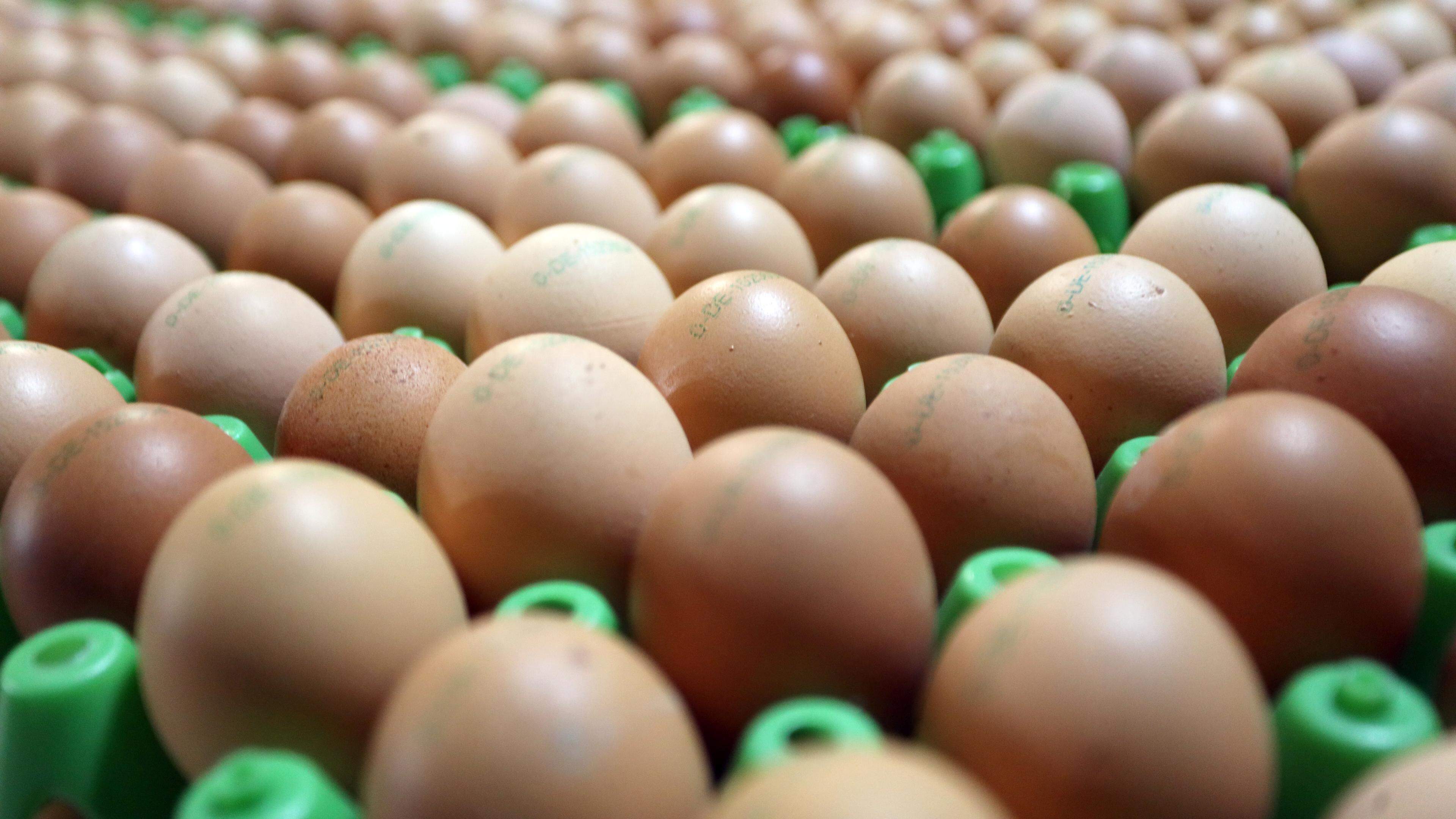Expert explains: How many eggs are really healthy?

Whether cooked, as a stirring, fried egg or omelette-eggs are part of a delicious breakfast for many people. At Easter, the colored eggs come on the table. But how many eggs are healthy and when will it get too much of a good thing? The most important egg facts for an Easter breakfast without repentance and guilty conscience.
That is in the egg
Eggs are healthy and valuable food. Among other things, there is in one egg:
-
Vitamin A – supports eye health
-
Vitamin B12 – helps reduce fatigue
-
Vitamin D – good for bones and teeth
-
Vitamin E – supports cells in protection against oxidative stress
-
Cholin – promotes fat metabolism in the liver
-
Protein – good for muscles and bones
-
Phosphorus – important for building bones and teeth
-
Iron – promotes the transport of oxygen in the blood
-
Selenium – strengthens the immune system
-
Zinc – good for skin, eyes, hair and nails
You can eat so many eggs with a clear conscience
Eggs are a staple for many people. According to surveys, the Luxembourgers consume over 280 eggs per capita in one year. Quite a lot, right? Can that still be healthy? Together with the German nutritionist Dr. Matthias Riedl we answer the most important questions about egg consumption.
For a long time it was said that eggs increase cholesterol levels. What’s the cholesterol myth?
« The idea that cholesterol automatically increases the mirror in the eggs has proven to be wrong. There are people who remain constant cholesterol levels, even if they eat eggs. In others, the mirror rises slightly, with others it drops.
It depends much more on how our cholesterol level is regulated, i.e. whether we live healthy. Weight reduction, sport, plant -rich nutrition and good fats – these are the determining factors to positively influence cholesterol levels, ”says nutritionist Riedl.
How many eggs a day can you eat?
« One or two eggs a day are ok, not only for Easter. However, if you want to protect the climate, you only eat one egg a week, » says expert Riedl. Riedl thus alludes to the so-called « Planetary Health Diet », which was developed by the EAT Lancet Commission in 2019.
EAT is an international non -governmental organization that is committed to the goal of realizing a fair, sustainable and healthy diet for all people. The Lancet is a leading medical magazine.
The EAT Lancet Commission is a cooperation between EAT and The Lancet. The EAT Lancet Commission includes 37 scientists from 16 countries. They come from various disciplines such as human medicine, agricultural science, political science or climate research. The common task is the development of global scientific approaches for a healthy diet and sustainable food production.
So it is more sustainable to eat less eggs. For health reasons, on the other hand, nothing speaks against daily egg according to the latest scientific knowledge.
So you can prevent type 2 diabetes
What can happen if you eat too many eggs?
« Eggs are very fed up. That means it could be that less fiber is eaten. This in turn can lead to constipation, » says doctor Riedel. Eggs are so full of eggs because they contain high -quality proteins. If you have two eggs in the morning, you often notice that the feeling of satiety lasts for several hours. This reduces the need to use a snack – often unhealthy – in between.
What other health benefits have eggs?
« Eggs primarily provide us with high-quality protein that is well digestible. There are also trace elements in it-in the egg white sodium and potassium, in the egg yolk calcium, phosphorus and iron as well as a number of vitamins, A and D, for example. Bio-eggs also contain more omega-3 fatty acids than conventional eggs, » says nutritionist Riedl.
What about people with diabetes?
Riedl also gives the all -clear here. He says: « What increases the glucose mirror are the carbohydrates and not the protein. Although proteins can increase in large quantities, if you eat blood sugar. But if you eat eggs in measurement, you can neglect it when calculating the insulin dose. In addition, protein has a positive effect on the pancreas. »
Eggs can also be combined well with vegetable protein. Photo: Silas Stein/dpa
What does a balanced Easter breakfast look like?
The nice thing about the Easter breakfast: it is rather a brunch. It can be celebrated with the whole family or friends for hours and everything is allowed from hearty to sweet. If you want it to be healthy and do not want to do without eggs, according to expert Riedl: “Eggs can be wonderfully combined with other foods. For example, they fit with salads, so we also get vitamins and fiber on the plate.
Together with vegetable protein, which is in potatoes or pasta, for example, the protein intake is also increased. This is due to the fact that different types of protein mix, i.e. the animal protein from the chicken egg and the vegetable protein made of potatoes, spelled and so on, can be better used by the body. That benefits our muscles and bones and our immune system. »
Eggs are better than their reputation. They contain many important nutrients such as proteins, vitamins and minerals. Therefore, from a health point of view, nothing speaks against eating an egg every day. And on Easter it can be a little more with a clear conscience.






/s3/static.nrc.nl/images/gn4/stripped/data133212332-41b949.jpg)